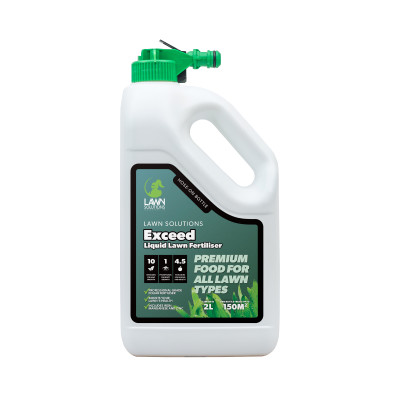Installing irrigation can be a great way to regularly water your lawn consistently, which can also help you to save water.
Have you ever thought about installing pop up sprinklers, but weren’t sure how? We have some tips on the key steps involved, hopefully providing you with the inspiration to get into some DIY.
How does pop-up irrigation work?
All the pipes and sprinkler heads are buried beneath the soil surface, completely hidden away keeping your lawn looking neat and tidy. When the system is turned on, the pop-up sprinklers rise from beneath the ground and then retract back down when the system is turned off usually by an automatic irrigation timer.
Here are the key steps:
Map out your lawn and sprinkler head locations – There is a little bit involved in getting this right, with water pressure, sprinkler head type and coverage requirements all effecting the layout. To keep it as simple as possible, break your lawn areas up into front, side and back. For an efficient sprinkler layout and adequate coverage, you will need to have overlapping spray patterns.
Dial before you dig – Before you begin to do any digging in your yard it is important that you check there are no shallow cables or pipes that you could come into contact with during the install.
Roll out the pipe – Roll out the pipe on the surface of the lawn, positioning your pop-ups and joiners where you plan to locate them.
Dig the trench – Dig a trench along the pipe path, making sure it is deep enough that the sprinklers are just slightly below soil level. This will help to avoid damage from your lawn mower.
Lay the pipe – Lay the pipe in your trench and secure it to the ground using irrigation pins approximately 1 metre apart.
Cut and fit attachments – Cut your pipe to length and slide a locking clamp at the end for securing the elbow joints. Insert the elbow into the end of each pipe where a join is required and tighten the locking clamps over the top to secure it in place. Once assembled, attach any timers or backflow preventers that form part of your system.
Seal the end of the pipe – To seal off the end of your pipe, attach an end piece and clamp in place with a locking clamp.
Connect to tap and timer – Connecting the pipe to the tap can be done with a click on tap fitting. A timer is also recommended to be included which can tell the irrigation control valve to open and close at pre-set times for a pre-determined duration. There are hose-end timers and programmable timers available. Programmable timers have a wider range of features and are becoming the most widely used due to their impressive capabilities.
Turn it on – Now is a good time to tweak your system. Check the system over for leaks, flush out the pipes for dirt and other debris before attaching the pop-ups.
Attach the pop-ups – Wrap plumber’s tape around the connection point on the elbows and screw all of the pop-ups into place.
Sprinkler heads come in two main types, fixed spray and rotary, with a range of heights and spray radius available.
Fixed spray heads do not move, they simply spray stationary in a full or half circle.
Rotary spray heads send out a high-pressure stream and rotate and can generally cover a larger area.
Cover the trench – Cover your trench back over with soil, packing the soil firmly around the sprinkler heads to hold them in position and at the correct height. Rotate the heads so they are directed where required and are not unnecessarily covering hard surfaces.
This is a guide only as there are many different variances to the types of systems and installation methods available. For more specific information and advice make sure you consult with your local irrigation supply shop or lawn care specialist.


